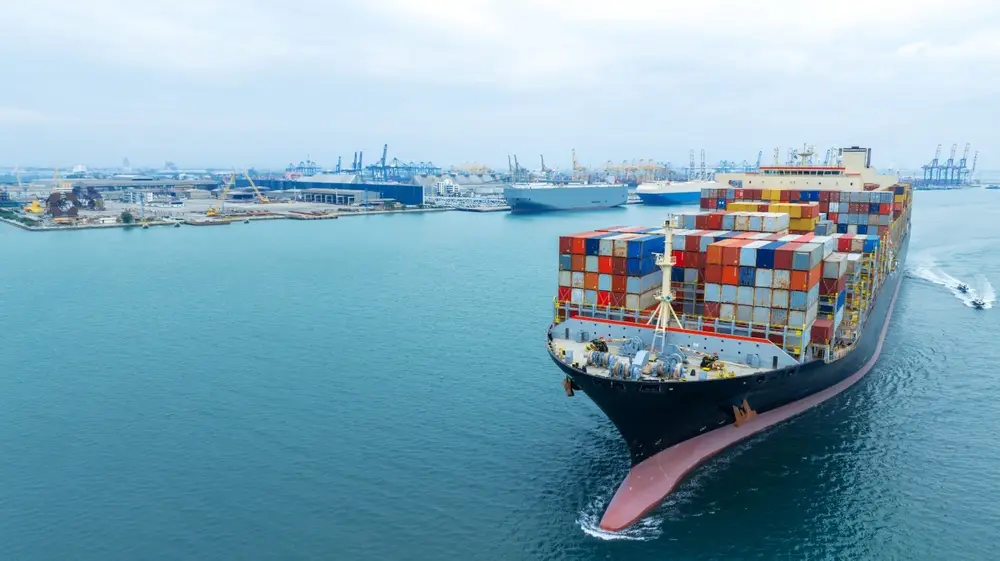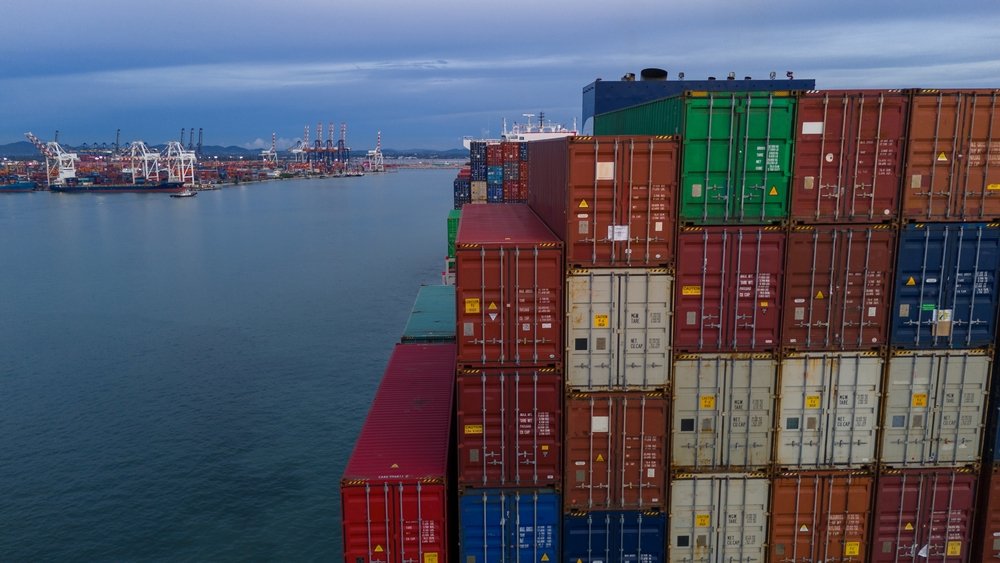Introduction
If you’re running a business that moves goods locally or across borders, insurance probably isn’t the most exciting thing on your checklist — but it definitely matters. Damaged cargo, piracy, storms, warehouse fires… anything can happen once your shipment leaves the warehouse. That’s where marine and cargo insurance come in.
But here’s the tricky part: most business owners think marine and cargo insurance are the same thing. Close… but not quite! Understanding the difference between marine and cargo insurance helps you choose better protection for your shipping operations, especially in 2026 when global logistics risks are higher than ever.
In this guide, we’ll break down these two insurance types in simple terms — what they cover, where they apply, and which one your business actually needs.
Key Takeaways
- The difference between marine and cargo insurance is that marine insurance covers vessels and liabilities, while cargo insurance protects goods in transit.
- A marine cargo insurance policy offers wider protection across sea, air, and land shipments.
- Choose cargo insurance coverage based on your shipment type, route, and risk level.
- Combining marine and cargo insurance ensures complete protection and peace of mind for global trade in 2026.
What Is Marine Insurance?
Marine insurance is a type of protection designed for goods and vessels traveling over water. Whether you’re shipping products across international oceans or sending materials through coastal routes, marine insurance acts as your financial safety net when something goes wrong at sea.

When cargo is exposed to storms, rough waves, piracy, or port accidents, even one small incident can cause major losses. That’s exactly why businesses rely on marine cargo insurance — it keeps your shipment financially protected from the moment it’s loaded onto the vessel until it’s safely unloaded.
What Marine Insurance Covers:
- Damage or loss of cargo during sea transport
- Accidents like collisions, fire, sinking, or grounding
- Theft, pilferage, or piracy on the ocean route
- Handling risks at seaports during loading/unloading
- In some cases, the ship or vessel itself
Marine insurance is especially important for importers, exporters, and global supply chains where ocean freight plays a major role. With international trade constantly facing disruptions, having the right marine cargo insurance coverage ensures your business operations stay secure and profitable — even if the sea gets unpredictable.
What Is Cargo Insurance?
While marine insurance covers both ships and cargo, cargo insurance focuses solely on protecting the goods themselves — whether they’re on a ship, plane, truck, or train. Think of it as a targeted safety net that ensures your products arrive at their destination intact and financially covered if something goes wrong.

Cargo insurance provides peace of mind for businesses that rely on timely, secure deliveries, especially in international trade. Even if the vessel, plane, or truck is fine, cargo insurance ensures that your goods are covered against damage, theft, or loss.
What Cargo Insurance Covers:
- Loss, damage, or theft of goods in transit
- Accidents during handling, loading, or unloading
- Natural disasters impacting cargo (storms, floods, earthquakes)
- Spoilage or deterioration for sensitive goods, depending on the policy
By investing in a marine cargo insurance policy, businesses transfer the financial risk of transit accidents to the insurer, ensuring losses don’t disrupt cash flow or supply chain operations.
Key Differences Between Marine and Cargo Insurance
Many businesses assume marine insurance and cargo insurance are the same — but they serve different purposes. Understanding the difference between marine and cargo insurance is crucial for choosing the right coverage for your shipments in 2026.

Here’s a quick breakdown:
Feature | Marine Insurance | Cargo Insurance |
Coverage Scope | Protects vessels, cargo, and liabilities | Protects only the goods being transported |
Who Uses It | Shipowners, carriers, freight operators | Importers, exporters, businesses shipping goods |
Transport Modes | Mainly sea, sometimes multimodal (sea + land/air) | Sea, air, road, rail — all transport modes |
Policy Type | Broader and more complex | Focused, simpler, shipment-based policies |
Premiums | Higher due to wide coverage | Based on cargo value, type, and risk |
Claims Process | Can involve multiple parties (shipowner, carrier, insurer) | Usually handled directly by cargo owner and insurer |
Why the Distinction Matters in 2026
Global trade is evolving fast, and so are the risks involved in shipping. Understanding the difference between marine and cargo insurance is more important than ever, especially in 2026, when businesses face more complex logistics and higher exposure to potential losses.
Key Reasons the Distinction Matters:
1:- Evolving Trade Routes
New shipping lanes and cross-border corridors in Asia, Europe, and beyond mean that cargo often travels longer distances and through multiple transit points. Marine insurance covers vessel-related risks, while cargo insurance ensures your goods themselves are protected across these routes.
2:- Rise of Multimodal Logistics
Today, shipments rarely rely on just one mode of transport. Goods often move from truck → ship → rail → truck. Understanding how marine and cargo insurance complement each other ensures continuous coverage across all legs of the journey.
3:- Regulatory Updates and Compliance
Different countries and clients have specific insurance requirements for international shipments. Using the right marine cargo insurance policy ensures you meet these regulations while avoiding fines or shipment delays.
4:- Industry Trends in Southeast Asia and India
With booming trade in India, Singapore, Thailand, Malaysia, and China, businesses face higher transit risks like port congestion, theft, and weather-related damage. Choosing the right coverage — whether marine, cargo, or both — protects finances and business reputation.
Which One Should Your Business Choose?
Choosing between marine insurance and cargo insurance — or deciding to use both — depends on your business needs, shipment type, and risk exposure. Let’s break it down so it’s easy to decide.
Factors to Consider:
- Type of Cargo
- High-value, fragile, or sensitive goods (electronics, pharmaceuticals, luxury items) benefit from cargo insurance coverage with comprehensive protection.
- If your business also owns or operates vessels, marine insurance is essential.
- Transport Mode
- Sea shipments often need both: marine insurance for the vessel and cargo insurance for the goods.
- Air, road, or rail shipments can rely primarily on cargo insurance, though multimodal routes may require a combined approach.
- Risk Exposure
- Long-distance international shipments or routes prone to natural disasters, piracy, or theft call for marine cargo insurance policies.
- Short domestic deliveries with minimal risk may only need standard cargo insurance.
- Shipment Frequency
- Businesses shipping occasionally can go for a Single Transit Cargo Insurance Policy.
- Frequent exporters/importers should consider Open Cover or Sales Turnover Policies (STOP) to cover multiple shipments automatically.
Industry Recommendations:
Industry | Best Option |
Apparel & textiles | Cargo insurance with named perils coverage for value protection |
Electronics & high-value goods | Cargo insurance with ICC A / all-risk coverage |
Freight forwarding & shipping companies | Combination of marine insurance + cargo insurance for complete coverage |
Common Mistakes Businesses Make
Even experienced exporters and importers sometimes slip up when it comes to marine and cargo insurance. Avoiding these mistakes can save you time, money, and stress.
Common Pitfalls:
- Assuming Cargo Insurance Covers Everything
Some businesses think that cargo insurance automatically covers all risks, including vessel damage. Remember, cargo insurance coverage protects your goods, not the ship or carrier liabilities. That’s where marine insurance comes in. - Not Reading Policy Exclusions
Every marine cargo insurance policy has exclusions — from improper packaging to transit delays. Failing to understand them can lead to denied claims. - Underinsuring High-Value Shipments
Shipping expensive or fragile items without adequate coverage can be costly. Always insure goods at their full value to ensure maximum protection. - Missing Documentation During Claims
Without proper paperwork — invoices, packing lists, bills of lading, and survey reports — even valid claims may be delayed or rejected. Keeping organized records is key for smooth claims processing. - Ignoring Multimodal Logistics Risks
Many businesses insure only one leg of a journey (like sea transport) but forget inland or air segments. A complete marine cargo insurance policy ensures coverage across all modes.
Also Read: How to File a Marine Cargo Insurance Claim: Step-by-Step Process
FAQ Section
Q1. Is cargo insurance part of marine insurance?
Yes. Cargo insurance is a subset of marine insurance that specifically protects goods during transit by sea, air, road, or rail. While marine insurance also covers ships, crew, and related liabilities, cargo insurance focuses only on the cargo itself.
Q2. What is the main difference between marine and cargo insurance?
Ans: The main difference between marine and cargo insurance is scope. Marine insurance covers vessels, freight, and cargo during sea transport, while cargo insurance covers only the goods being shipped — regardless of the transport mode.
Q3. Can I use marine insurance for air or land shipments?
Ans: Traditional marine insurance mainly applies to sea transport, but modern marine cargo insurance policies can extend coverage to multimodal shipments involving air, road, and rail. Always confirm your insurer’s coverage terms before shipping.
Q4. What documents are required to file a cargo insurance claim?
Ans: To file a cargo insurance claim, you’ll typically need the invoice, packing list, bill of lading, survey report, and a claim form. Accurate documentation speeds up claim approval and ensures full cargo insurance coverage for your loss.
Conclusion
Understanding the difference between marine and cargo insurance helps businesses choose the right protection for their shipments. While marine insurance covers vessels, liabilities, and goods at sea, cargo insurance focuses on the items being transported across any mode — sea, air, or land.
In 2026’s fast-changing trade environment, combining both policies ensures complete cargo insurance coverage and peace of mind. With the right marine cargo insurance policy, your shipments stay protected, your finances secure, and your business ready for whatever the journey brings.



